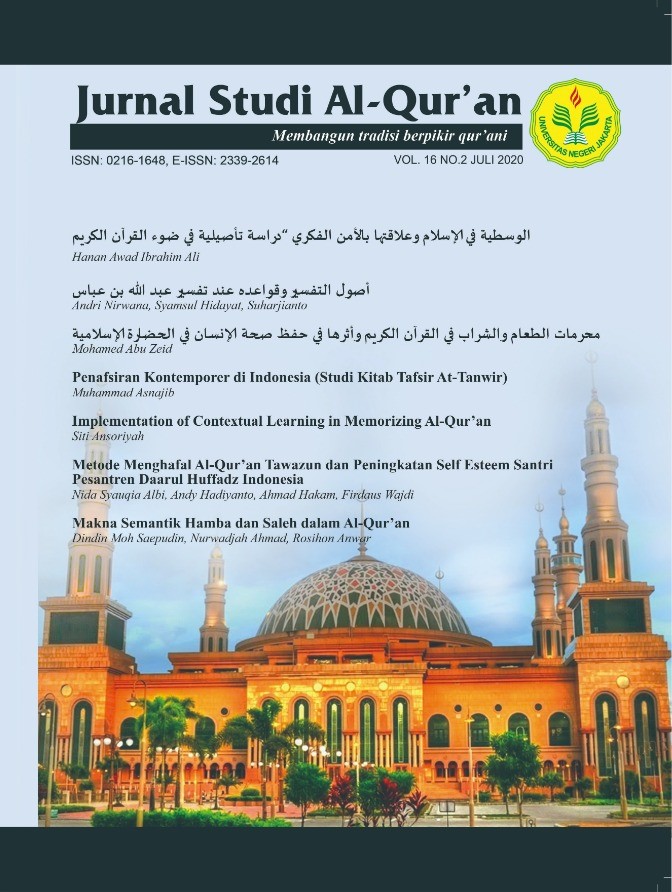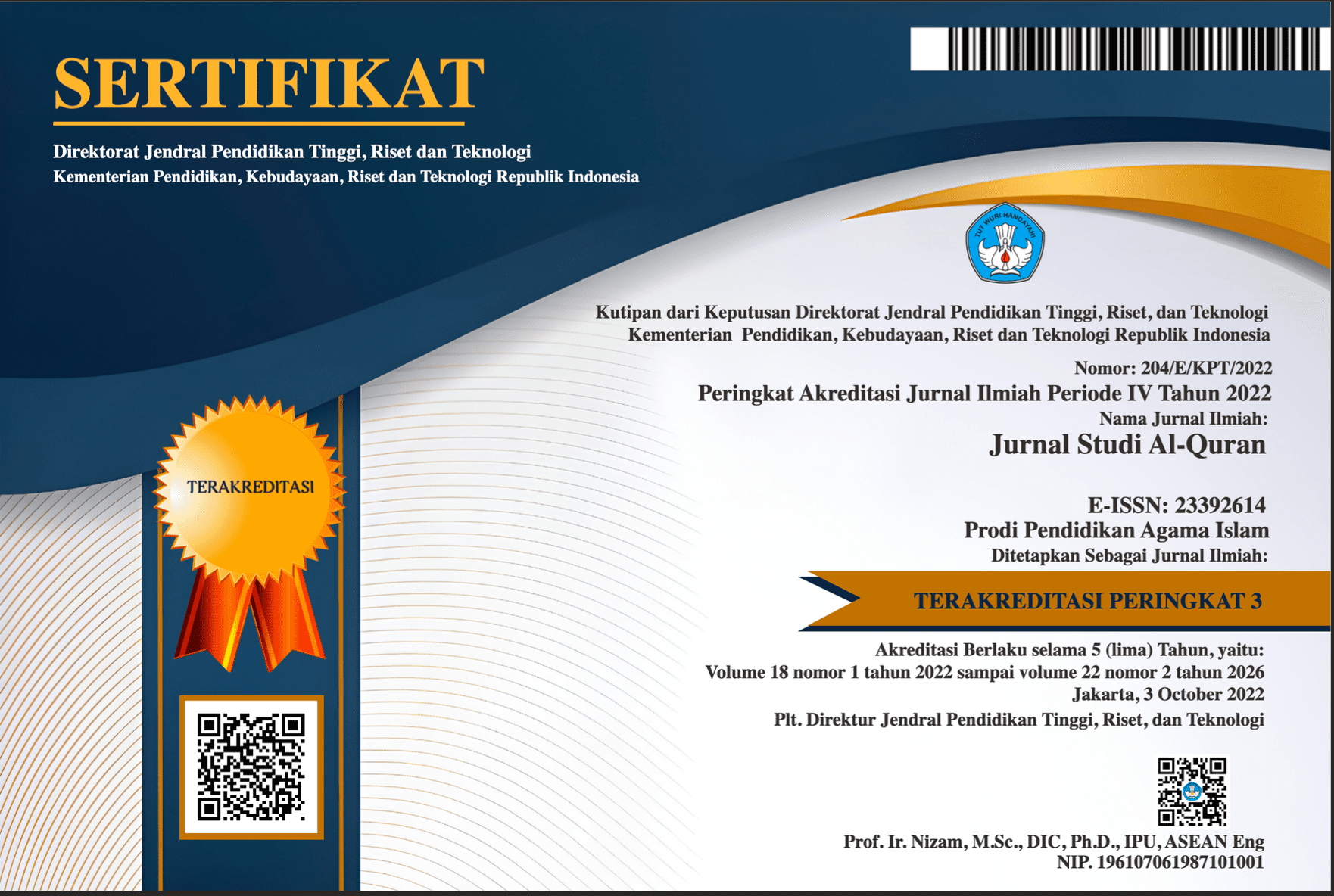أصول التفسير وقواعده عند تفسير عبد الله بن عباس
DOI:
https://doi.org/10.21009/JSQ.016.2.02Keywords:
Ushul, Qawaid, TafsirAbstract
The efforts of the Sahabah of the Prophet Muhammad saw, Abdullah ibn Abbas in developing the rules of interpretation, can be used by subsequent interpreters in developing interpretation rules in accordance with the times. Qaidah Tafseer only discusses the main points and lines of sharia law contained in the Qur'an, and then developed into a law detail. Qawaid Tafsir is not a means of justifying the truth in interpreting the Qur'an but only serves as a guardian of the methodology so that the resulting interpretation is objective, scientific, and accountable. Qiraat Science is a Muslim guide in reading the Qur'an. Abdullah bin Abbas has conveyed in his interpretation some Qiraat science that could be utilized by the next Ummah. Asbabun Nuzul is the study of the contextuality of a verse regarding events or questions. Abdullah bin Abbas was very close to the Prophet so that all knowledge of Asbabun Nuzul experienced at that time was very helpful in the interpretation of the Qur'an. Knowledge of Nasikh wal mansukh is very dependent from a historical point of view. The Companions of the Prophet knew very well where the verses that had been deleted the law and even the texts as well. The goodness of the Companions of the Prophet is because they live with the Prophet and have a strong memory. These four categories of knowledge are the concepts of Abdullah bin Abbas in interpreting the Qur'an.
References
أحكام القرآن لإبن عربي
أسباب النزول القرآن، للواحدي
النسخ في القرآن الكريم: دراسة تشريعية تاريخية نقدية، د. مصطفى زيد، دار الوفاء بالمنصورة، مصر، 1408 هـ/ 1987
بحوث في أصول التفسير ومناهجه، فهد بن عبد الرحمن بن سليمن الرومي، مكتبة التوبة
تفسير القرآن العظيم، أبو محمد عبد الرحمن بن محمد ادريس بن المنذر التميمي، الحنظلي، الرازي ابن ابي حاتم (ت 327 هـ)، تـحقيق: اسعد محمد الطييب، مكتبة نزار مصطفى الباز، السعودية، ط 3، 1419 هـ، ج 1، رقم 1096
التفسير الكبير المسمى بالبحر المحيط
الجامع الأحكام القرآن (تفسير القرطبي)
جامع البيان عن تأويل أي القرآن، الطبري،
الجامع الصحيح، البخاري
سنن أبي داوود، (رقم 1464)
القواعد الحسان لتفسير القرآن: عبد الرحمن بن سعدي
الكشف عن وجوه القراءات السبع،
مناهل العرفان في علوم القرآن، محمد عبد العظيم الزرقاني، ج 2
الموافقات في أصول الأحكام، للشاطبي ابراهيم بن موسى (ت 790 هـ) تعليق: محمد الخضر حسين ومحمد حسنين
Amaliah, R. ., & Fadhil, A. (2014). Penerapan Metode Ceramah dan Diskusi Dalam Meningkatkan Hasil Belajar PAI di SMA Negeri 44 Jakarta. Jurnal Studi Al-Qur’an.
AN, A. N. (2014). أصول التفسير عند عبد الله بن عمر رضي الله عنهما في تفسير القرآن. Jurnal Ilmiah Peuradeun.
Mardhiah, I., Aulia, R. N., & Narulita, S. (2014). Jurnal Studi Al- Qur’an; Membangun Tradisi Berfikir Qur’ani Vol. 6, No. 1, Tahun. 2010. Studi Al-Qur’an Membangun Tradisi Berfikir Qur’ani.
Downloads
Published
How to Cite
Issue
Section
License
Authors who publish with this Journal agree to the following terms:
- Author retain copyright and grant the journal right of first publication with the work simultaneously licensed under a creative commons attribution licensethat allow others to share the work within an acknowledgement of the work’s authorship and initial publication of this journal.
- Authors are able to enter into separate, additional contractual arrangementfor the non-exclusive distribution of the journal’s published version of the work (e.g. acknowledgement of its initial publication in this journal).
- Authors are permitted and encouraged to post their work online(e.g. in institutional repositories or on their websites) prior to and during the submission process, as it can lead to productive exchanges, as well as earlier and greater citation of published works.
Users/public use of this website will be licensed to CC BY










